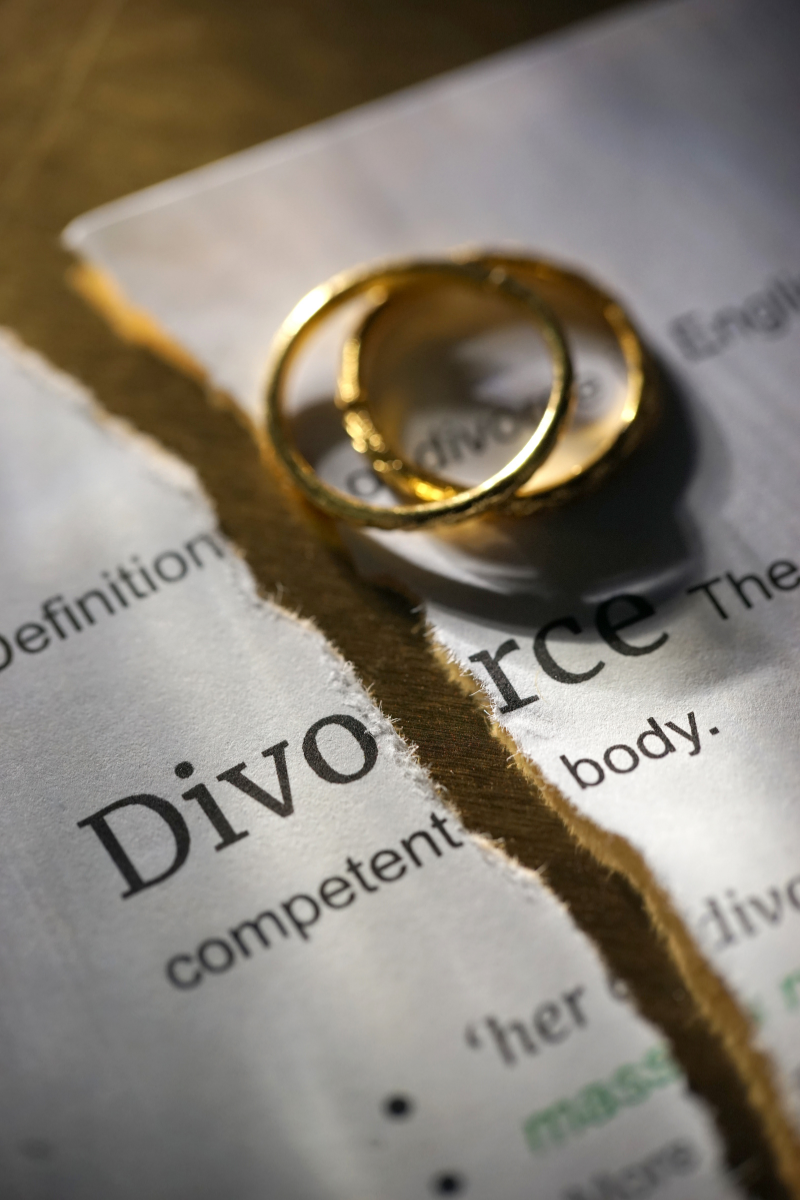Ask an Attorney: How Do I Protect My Assets in a Divorce?
Divorce can be one of life’s most emotionally and financially turbulent experiences. As relationships unravel, so too can the stability of your financial future if not handled with care. Whether you’re contemplating divorce, in the midst of it, or preparing for life after, understanding how to protect your assets is crucial.
At Masters Law Group, we’ve guided countless clients through complex divorces, helping them secure what’s rightfully theirs while navigating the intricacies of Illinois divorce law. In this blog, we’ll walk you through the essential steps and legal strategies to protect your assets during a divorce.
Understanding Asset Division in Illinois
Illinois is an equitable distribution state, not a community property state. That means marital property isn’t necessarily split 50/50 during a divorce—it’s divided fairly, based on a variety of factors.
Key Terms:
- Marital Property: Assets acquired during the marriage, regardless of who holds the title.
- Non-Marital Property: Assets acquired before marriage or through inheritance/gift specifically to one spouse.
- Equitable Distribution: A division based on fairness, not necessarily equal, but just.
Understanding these distinctions is the first step in knowing what assets are at stake and which may be protected.
1. Identify and Classify All Assets
The first thing your divorce attorney will do is work with you to identify, classify, and value your assets.
Common Marital Assets:
- Joint bank accounts
- Retirement accounts and pensions
- The family home
- Vehicles
- Businesses
- Stocks and investments
- Debt incurred during the marriage
Common Non-Marital Assets:
- Property owned before marriage
- Inheritances
- Gifts from third parties (not between spouses)
- Personal injury awards (in some cases)
Keep in mind that commingling—or mixing marital and non-marital property—can complicate matters. For example, if you deposited inheritance money into a joint bank account and used it for household expenses, it may be considered marital property.
2. Keep Detailed Records
Documentation is your best defense in a divorce. If you want to protect certain assets, you must prove ownership and origin. This includes:
- Bank statements
- Property deeds
- Business ownership records
- Proof of inheritance or gifts (such as wills or letters)
- Loan agreements
- Prenuptial or postnuptial agreements
These records should go back as far as possible, especially if you’re trying to trace the origin of non-marital property.
3. Consider a Prenuptial or Postnuptial Agreement
If you haven’t filed for divorce yet, one of the best asset protection tools is a prenuptial or postnuptial agreement.
- Prenuptial Agreement: Signed before marriage, outlining how property and assets will be divided in the event of divorce.
- Postnuptial Agreement: Similar to a prenup, but signed during the marriage.
These legal agreements can help define what’s considered separate property and how certain assets (including debts) will be handled. They can also protect business interests and inheritance rights.
While courts can overturn such agreements under specific circumstances (e.g., if signed under duress or found to be unconscionable), a properly drafted agreement is a strong line of defense.
4. Don’t Attempt to Hide Assets
Some people, fearing asset loss, are tempted to hide assets, transfer ownership, or undervalue items. Especially when it comes to hard-to-find digital assets like Cryptocurrency. This is a major mistake.
Courts in Illinois require full and honest financial disclosure during divorce proceedings. If you attempt to conceal property and it’s discovered (which is likely), the court may:
- Award a larger share to your spouse
- Impose sanctions or fines
- Hurt your credibility in all aspects of the case
Work with your attorney to disclose all assets truthfully and create a legal strategy to protect what you can within the bounds of the law.
5. Protect Your Business Interests
If you own a business, divorce can put everything at risk, especially if your spouse played any role in the business or if marital funds were used to grow it.
How to Protect a Business:
- Keep personal and business finances separate
- Pay yourself a market-rate salary (to avoid claims that profits were marital gain)
- Have a clear operating agreement or partnership agreement
- Obtain a professional valuation of the business
- Consider a buy-sell agreement
If your spouse is entitled to a share of the business’s value, options include a buyout, structured settlement, or trading off other assets of equal value.
6. Understand Retirement Account Division (QDROs)
Retirement accounts such as 401(k)s, IRAs, and pensions are often marital property if accrued during the marriage. In Illinois, these can be divided using a Qualified Domestic Relations Order (QDRO).
A QDRO allows for the division of a retirement account without triggering taxes or penalties. Each spouse receives their share, and it’s crucial to ensure the order is properly prepared and submitted.
If you have a pension or defined benefit plan, an actuary may be needed to determine the present value for equitable distribution.
7. Separate and Secure Digital Assets
In today’s digital age, your online presence and digital assets may have value, financial and personal. These can include:
- Cryptocurrencies
- Online business revenue (e.g., from eCommerce or influencers)
- NFTs
- Intellectual property
- Loyalty rewards or airline miles
Ensure that digital wallets and passwords are protected. Provide proper valuation and documentation, and work with your attorney to address these assets in the divorce settlement.
8. Be Strategic with Joint Accounts
If you and your spouse share joint bank accounts, it’s essential to:
- Monitor activity carefully
- Keep copies of all transactions
- Avoid large withdrawals without agreement or court order
If you’re worried about funds being drained, you may need to file for a temporary restraining order to freeze the account. However, consult with your attorney before taking any action that could be perceived as unilateral or aggressive.
9. Create a Post-Divorce Financial Plan
Protecting your assets isn’t just about the divorce—it’s about your future. A post-divorce financial plan can help you:
- Reassess your budget
- Rebuild your savings
- Protect your credit
- Reallocate retirement contributions
- Update insurance and estate planning documents
At Masters Law Group, we often collaborate with financial advisors to help ensure our clients are prepared for the next chapter.
10. Work with a Skilled Divorce Attorney
Above all, the best way to protect your assets in a divorce is to partner with an experienced attorney who knows Illinois family law.
At Masters Law Group, our team provides:
- Strategic guidance tailored to your situation
- Expertise in high-net-worth and complex divorces
- Mediation and litigation services
- Asset valuation and financial disclosure support
We help you navigate negotiations with clarity and confidence, always working toward a fair and favorable outcome.
Frequently Asked Questions
-
Can I protect my inheritance in a divorce?
Yes—inheritances are generally considered non-marital property if they are not commingled with marital assets. Keeping it in a separate account and avoiding using it for marital expenses can protect it.
-
What happens to the house in a divorce?
If the house was purchased during the marriage, it’s likely marital property. The court may award it to one party, order a sale, or arrange a buyout. If one spouse owned it before marriage, it may be considered separate property unless marital funds were used to pay the mortgage or improve it.
-
What if my spouse is hiding assets?
Your attorney can use legal tools such as discovery, subpoenas, and forensic accountants to uncover hidden assets. Courts penalize dishonesty, and such tactics can backfire on the hiding spouse.
-
How can I protect my business from being divided in a divorce?
If your business was started before the marriage or funded solely by non-marital assets, it may be protected. However, if it grew significantly during the marriage or marital funds were used, your spouse may have a claim. To protect your business, maintain detailed financial records, avoid commingling personal and business funds, and consider using a buy-sell agreement or valuing the business for a potential buyout during divorce proceedings.
-
Is debt divided the same way as assets in a divorce?
Yes—under Illinois’ equitable distribution laws, both assets and debts acquired during the marriage are divided fairly. This includes credit card debt, mortgages, auto loans, and personal loans. It’s important to identify whether the debt is marital or non-marital and to work with your attorney to ensure you are not held responsible for debts that aren’t yours.
Final Thoughts
Divorce is never easy, but protecting your financial future is possible with the right strategy and legal guidance. At Masters Law Group, we understand the emotional and financial complexities of asset division, and we’re here to help you make smart, strategic decisions.
From initial consultation to final settlement, our skilled attorneys will stand by your side to ensure you keep what’s rightfully yours and emerge with a solid foundation for your future.
Schedule a Consultation
Ready to discuss your case with an experienced Illinois divorce attorney? Contact Masters Law Group today to schedule a confidential consultation and start building a plan to protect your assets and your peace of mind.

























